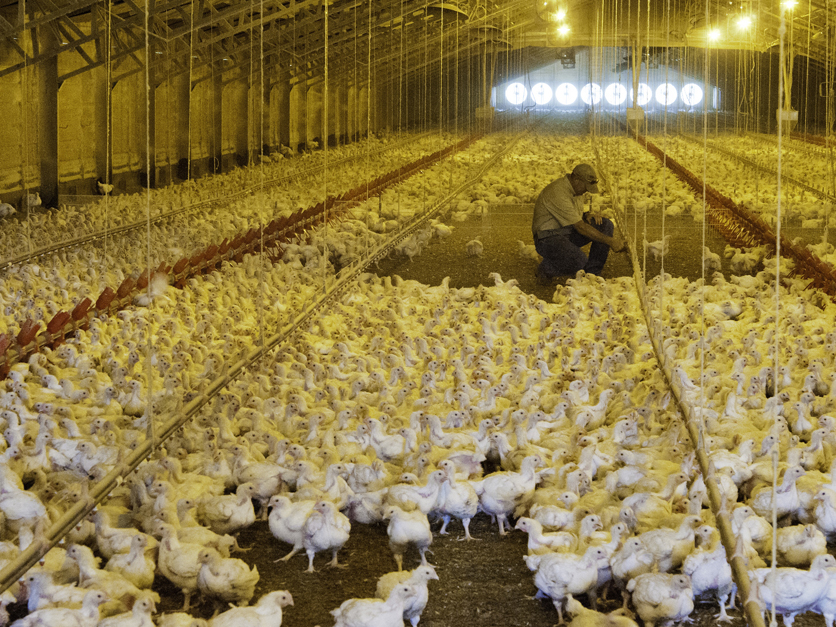USDA’s failure to implement the Obama Administration’s Farmer Fair Practices Rules has been upheld by a federal appeals court, in a victory for poultry and livestock interests who said the regulations would lead to frivolous lawsuits and impede their ability to market their products.
The Omaha-based Eighth Circuit Court of Appeals said it could not conclude, as the Organization for Competitive Markets alleged, that USDA had “unlawfully withheld” action by failing to comply with a deadline in the 2008 farm bill. USDA, the court said, proposed regulations “responsive” to the farm bill mandate.
The rules consisted of an interim final rule and two proposed rules from late 2016. Taken together, the language would have altered proof of harm requirements for livestock producers seeking to prove competitive injury through contracts with meat packers. At the time, USDA said the action was designed, in part, to “level the playing field for farmers by proposing protections against the most egregious retaliatory practices harming chicken growers.”
But USDA withdrew the regulatory package last year, sparking fury from groups like OCM. In its decision, the court ruled USDA had sufficiently acted on the matter.
“USDA’s conclusion that the interim final rule and proposed regulations would result in protracted litigation that ‘serves neither the interests of the livestock and poultry industries’ nor USDA is a rational reason not to adopt a proposed change of course,” the court said in its 3-0 decision.
OCM claimed USDA had unlawfully withdrawn the rules without replacing them. When the opinion came out, OCM expressed disappointment, saying the rules “would have removed obstacles that prevent farmers and ranchers from bringing action against meatpacking and poultry processing corporations over unfair business practices.”
“Our attorneys are now reviewing our legal options and we are looking at other avenues to protect America’s farmers and ranchers,” the group said.
The National Chicken Council welcomed the ruling. "NCC is pleased that our position has been upheld once again, as it has in the past years in Congress, at USDA and in eight federal circuit courts of appeal," NCC spokesman Tom Super said. "These rules would have opened the floodgates for trial lawyers and frivolous lawsuits, stifled innovation and increased costs for producers and consumers."
"For years, American farmers have been calling for protections against the most damaging unfair and deceptive practices confronting family farms across the country," Agriculture Secretary Tom Vilsack said in announcing the regulations, which were rolled out in December of 2016.
The court called the timing of the regulations – a month after Donald Trump had won the 2016 presidential election but before he had taken office – “significant.”
“The outgoing USDA administrators left their successors a time bomb,” the court said, because the rules interpreted the Packers and Stockyards Act in a way “that had been consistently rejected by numerous courts of appeals for over 75 years, without congressional intervention.”
In the 2008 Farm Bill, Congress had directed USDA to issue regulations “with respect to” the Grain Inspection, Packers & Stockyards Administration targeting specific competitive issues in the chicken industry. USDA followed two years later with proposed rules addressing not just the chicken industry but others “addressing additional ‘discretionary’ subjects,” the court noted.
Specifically, USDA said that even “without a finding of harm or likely harm to competition,” it should be able to determine certain conduct violated the PSA, which was enacted in 1921 "to assure effective competition and integrity in the marketing of livestock, meat, and poultry," according to the department.
“This is not a case where an agency has failed to take action in the face of multiple unambiguous commands,” the three-judge panel said. “USDA postponed the interim final rule, solicited additional public comment, and then took the alternative final action urged in a substantial majority of the comments, giving rational reasons for its decision to withdraw a proposed regulatory change and to adhere to its longstanding practice.”
“USDA explained that it was withdrawing the interim final rule and taking no further action on the proposed regulations because the proposed regulatory change of course would generate protracted litigation, adopt vague and ambiguous terms, and might prevent innovation and foster vertical integration that would hinder new market entrants,” the court said.
The court said it was “wary of becoming the ultimate monitor of congressionally set deadlines.”
For more news, go to www.Agri-Pulse.com.


